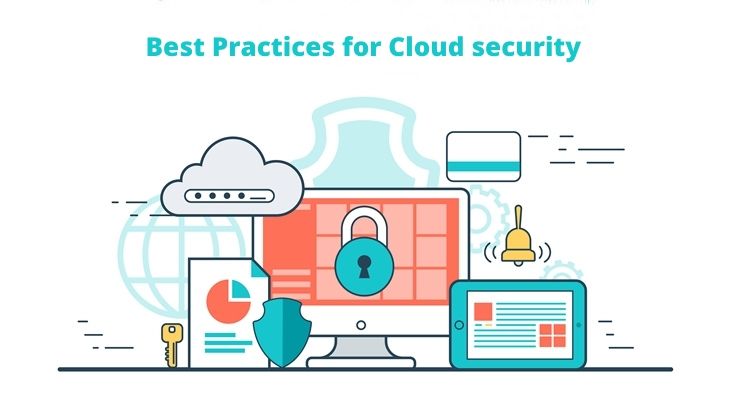What are Cloud Databases?
Cloud databases are innovative data management solutions that offer scalability, flexibility, and cost-efficiency compared to traditional on-premises databases. These databases are hosted on remote servers maintained, operated, and managed by cloud service providers. Organizations can access and manage their data through the internet, eliminating the need for investing in and maintaining physical infrastructure.
The “database on cloud” approach provides several benefits, such as reduced capital and operational expenses, increased collaboration, and enhanced business continuity. Cloud databases enable businesses to swiftly adapt to changing data requirements by scaling resources up or down as needed, ensuring optimal performance during peak usage times. Additionally, cloud database providers often offer robust security measures, including encryption, access control, and monitoring, to protect sensitive data and maintain regulatory compliance.
How to Choose the Right Cloud Database Provider
Selecting the ideal cloud database provider is a critical decision that can significantly impact an organization’s data management strategy. To make an informed choice, consider the following key factors:
- Security: Assess the provider’s security measures, such as encryption, access control, and monitoring capabilities. Ensure that they align with your organization’s data protection requirements and comply with relevant regulations.
- Pricing: Evaluate the provider’s pricing structure, including any hidden fees or costs associated with scaling, data transfer, or support services. Opt for a provider that offers transparent and flexible pricing options to accommodate your budget and resource needs.
- Scalability: Choose a provider that can seamlessly scale resources up or down based on your data management demands. A scalable “database on cloud” solution ensures optimal performance during peak usage times and helps control costs during periods of low demand.
- Support: Look for a provider that offers robust support services, including documentation, tutorials, and responsive customer service. A strong support system can help you quickly resolve issues and maximize the potential of your cloud database solution.
Top Cloud Database Providers in the Market
The “database on cloud” market is dominated by several leading providers, each offering unique features and strengths. Here’s a brief overview:
Amazon Web Services (AWS)
Amazon Web Services (AWS) is a popular choice for organizations seeking a robust and scalable cloud database solution. AWS offers various services, including Amazon RDS, DynamoDB, and Aurora, catering to diverse data management needs. AWS is known for its extensive documentation, global data centers, and strong customer support.
Microsoft Azure
Microsoft Azure is another prominent player in the cloud database market, providing services such as Azure SQL Database, Cosmos DB, and Azure Database for MySQL, PostgreSQL, and MariaDB. Azure is integrated with Microsoft’s suite of products and services, making it an ideal choice for organizations already using Microsoft technologies.
Google Cloud Platform (GCP)
Google Cloud Platform (GCP) offers a variety of cloud database services, including Cloud SQL, Cloud Spanner, and Cloud Bigtable. GCP is renowned for its machine learning and AI capabilities, making it an attractive option for businesses looking to leverage advanced analytics in their data management strategy.
When selecting a cloud database provider, consider your organization’s unique requirements, such as data type, scalability, security, and budget. Each provider offers distinct advantages, so it’s essential to evaluate their features and strengths to determine the best fit for your data management needs.
Popular Cloud Database Services
Cloud database services offer a wide range of benefits, such as reduced maintenance, automatic backups, and simplified scalability. Here are some popular cloud database services and their use cases:
Amazon Relational Database Service (RDS)
Amazon RDS is a managed service that makes it simple to set up, operate, and scale a relational database on the cloud. It supports popular database engines like MySQL, PostgreSQL, MariaDB, Oracle, and SQL Server. Amazon RDS is ideal for applications requiring high availability, performance, and security.
Azure SQL Database
Azure SQL Database is a fully managed relational database service that offers predictable performance, high availability, and dynamic scalability. It supports multiple programming languages, frameworks, and tools, making it suitable for web, mobile, and line-of-business applications.
Google Cloud SQL
Google Cloud SQL is a fully managed relational database service that supports MySQL, PostgreSQL, and SQL Server. It offers automatic replication, backups, and patch management, making it an excellent choice for applications requiring a high level of data consistency and availability.
When selecting a cloud database service, consider factors such as data type, performance requirements, scalability, and integration with existing tools and frameworks. Each service offers distinct advantages, so it’s essential to evaluate their features and strengths to determine the best fit for your data management needs.
Security Best Practices for Cloud Databases
Implementing robust security measures is crucial when managing sensitive data using a “database on cloud” solution. Here are some actionable best practices for securing your cloud database:
- Encryption: Encrypt data both at rest and in transit to protect it from unauthorized access. Use encryption keys provided by your cloud database provider or manage your own keys using a dedicated key management service.
- Access control: Implement strict access control policies, such as role-based access control (RBAC) or attribute-based access control (ABAC), to ensure that only authorized users and applications can access your cloud database.
- Monitoring: Continuously monitor your cloud database for suspicious activities and potential security threats. Set up alerts and notifications to ensure that you’re promptly informed of any security incidents.
- Regular audits: Perform regular security audits and vulnerability assessments to identify potential weaknesses in your cloud database environment. Address any identified issues promptly to maintain a secure data management strategy.
By following these best practices, you can significantly reduce the risk of security breaches and ensure the confidentiality, integrity, and availability of your cloud database.
Migrating to a Cloud Database: A Step-by-Step Guide
Migrating from a traditional on-premises database to a cloud database can be a complex process, but it offers numerous benefits, such as improved scalability, reduced maintenance, and lower costs. Here’s a step-by-step guide to help you navigate the migration process:
- Assess your current database: Evaluate your existing database infrastructure, including data types, volume, and performance requirements. Identify any potential challenges or limitations that may impact the migration process.
- Select a cloud database provider: Based on your assessment, choose a cloud database provider that aligns with your requirements. Consider factors such as security, pricing, scalability, and support when making your decision.
- Plan the migration: Develop a detailed migration plan, outlining the steps required to move your data and applications to the cloud. Identify any necessary data transformations, schema changes, or application modifications.
- Prepare the target cloud database: Set up the target cloud database environment, including configuring security settings, performance optimizations, and backup and recovery strategies.
- Migrate the data: Use tools and techniques, such as database dumps, data replication, or third-party migration tools, to move your data to the cloud database. Test the migration process thoroughly to ensure data integrity and consistency.
- Validate and test: Verify that the migrated data is accurate and complete. Test the applications and workflows that rely on the database to ensure they function as expected in the new cloud environment.
- Monitor and optimize: Continuously monitor the cloud database for performance, security, and scalability. Implement strategies to optimize database performance, such as indexing, caching, and query optimization.
By following these steps, you can ensure a smooth and successful migration to a cloud database, maximizing the benefits of this flexible and scalable data management solution.
Optimizing Cloud Database Performance
Achieving optimal performance is crucial for any database, and cloud databases are no exception. Here are some tips and strategies for optimizing the performance of your “database on cloud”:
- Indexing: Proper indexing is essential for efficient data retrieval. Analyze your database queries and create indexes on frequently accessed columns to improve query performance.
- Caching: Implement caching mechanisms to store frequently accessed data in memory, reducing the need for expensive database queries. Popular caching solutions include Redis, Memcached, and in-memory databases like Amazon ElastiCache and Azure Cache for Redis.
- Query optimization: Analyze and optimize your database queries to minimize execution time and resource usage. Techniques include using the EXPLAIN statement to understand query execution plans, rewriting inefficient queries, and minimizing the use of subqueries and joins.
- Horizontal scaling: Cloud databases enable easy horizontal scaling, allowing you to add or remove resources based on demand. Implement auto-scaling policies to ensure your database can handle peak loads and reduce costs during periods of low usage.
- Monitoring and analytics: Continuously monitor your cloud database for performance metrics and analyze trends to identify potential bottlenecks or inefficiencies. Use built-in monitoring tools, such as Amazon CloudWatch, Azure Monitor, or Google Cloud Monitoring, to track resource utilization, query performance, and other key metrics.
By implementing these strategies, you can ensure that your cloud database performs optimally, delivering fast and reliable data access to your applications and users.
The Future of Cloud Databases: Trends and Predictions
Cloud databases have revolutionized data management, and their impact will continue to grow as new trends and technologies emerge. Here are some exciting developments and predictions for the future of “database on cloud”:
- Serverless databases: Serverless architectures are becoming increasingly popular in the cloud, and databases are no exception. Serverless databases automatically manage infrastructure and resources, enabling developers to focus on application logic and scaling. Providers like AWS (Aurora Serverless), Azure (Azure Cosmos DB Serverless), and GCP (Cloud Firestore) offer serverless database services.
- AI-driven database management: Artificial intelligence and machine learning are being integrated into cloud databases to automate tasks, optimize performance, and improve data analysis. AI-driven database management can predict usage patterns, identify bottlenecks, and suggest optimizations, leading to more efficient and cost-effective data management.
- Data mesh architectures: Data mesh is an emerging approach to data management that emphasizes decentralization, domain-driven design, and self-service data infrastructure. In a data mesh architecture, cloud databases are distributed across various domains, allowing teams to manage and consume data independently. This approach promotes autonomy, scalability, and resilience in data management.
- Multi-cloud and hybrid cloud strategies: Organizations are increasingly adopting multi-cloud and hybrid cloud strategies to leverage the unique benefits of different cloud providers and on-premises infrastructure. Cloud databases play a crucial role in these strategies, providing seamless data synchronization, migration, and integration across various platforms.
- Quantum computing and databases: Quantum computing is poised to revolutionize various industries, including data management. Quantum databases could offer unprecedented performance and capabilities, such as quantum encryption, quantum simulation, and quantum machine learning. While still in the early stages, quantum databases represent an exciting frontier for cloud data management.
By staying informed about these trends and developments, organizations can harness the full potential of cloud databases and drive innovation in data management.



